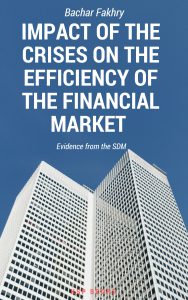Dr. Louis Galambos is a professor emeritus in the Department of History and editor of The Papers of Dwight David Eisenhower (21 volumes) at Johns Hopkins University. He has served as president of the Business History Conference and the Economic History Association. A former editor of The Journal of Economic History, he has written extensively on U.S. business history, business-government relations, the economic aspects of modern institutional development in America, and the rise of the bureaucratic state. His books include Competition and Cooperation: The Emergence of a Modern Trade Association; The Changing Economic Order; The Public Image of Big Business in America, 1880-1940; America at Middle Age; and The Rise of the Corporate Commonwealth: U.S. Business and Public Policy in the Twentieth Century. He is president and a principal of the Business History Group, a consulting organization, and has been an historical consultant to Merck & Co., Inc., Pacific Telesis Group, AT&T, and the World Bank Group.
In addition to editing The Papers of Dwight David Eisenhower, Galambos has edited (with Robert Gallman) the Cambridge University Press series Studies in Economic History and Policy: The United States in the Twentieth Century. At Johns Hopkins University Press, he has edited The Johns Hopkins/AT&T Series in Telephone History and has published extensively on the historical development of America’s telecommunications system and its relationship with the government. He is co-author of The Fall of the Bell System and Anytime, Anywhere: Entrepreneurship and the Creation of a Wireless World.
Prof. Galambos’ major interest is the process of innovation and its links to the growth of large-scale organizations, professional institutions, and new government programs in the 20th century. He began this line of inquiry with his analysis of the Bell System and continued his research and writing on this subject in a series of studies of the pharmaceutical firm Merck & Co., Inc. He authored the historical section of Values and Visions: A Merck Century, the company’s centennial volume. Also related are three books he co-authored that have been published by Cambridge University Press: Networks of Innovation: Vaccine Development at Merck, Sharp & Dohme, and Mulford, 1895-1995; Medicine, Science and Merck; and The Moral Corporation. (The last two works were co-authored with Dr. Roy Vagelos, former Chairman of Merck.) His study of The Creative Society – and the Price Americans Paid for It was published in 2012 at Cambridge University Press and he co-edited (with Jeffrey Sturchio) Noncommunicable Diseases in the Developing World (Johns Hopkins University Press, 2014).
Dr. Franco Amatori, Full professor of Economic History. Currently Head of the Institute of Economic History. President of ASSI (Italian Association of Business Historians). Past president of the European Business History Association. President of the Scientific Committee of ICSIM (Istituto per la Cultura e la Storia d’Impresa “Franco Momigliano”). Honorary Member of the American Historical Association. Member of the editorial advisory board of the Business History Review, of the editorial board of Enterprise and Society and of Business History. Member of the advisory board of the Business History Conference. Editor of Annali di storia dell’impresa. Co-editor of “Comparative Perspectives in Business History”, a series of volumes from Cambridge University Press.
















